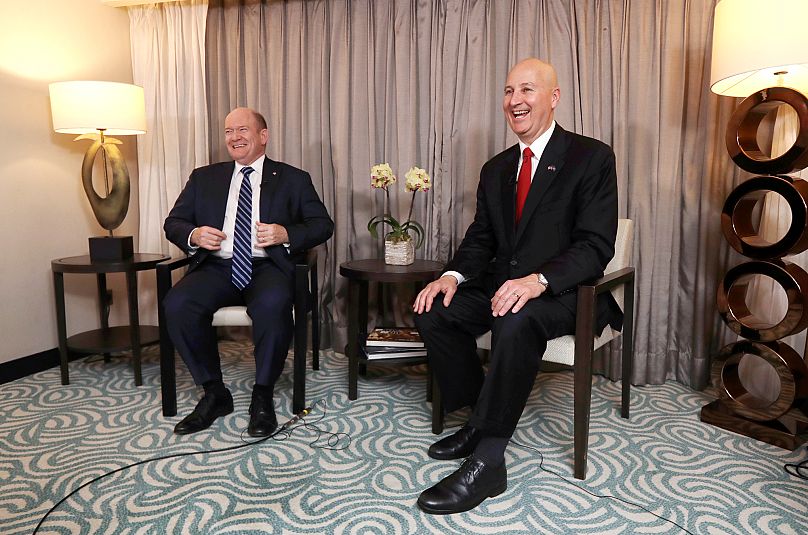A bipartisan group of US lawmakers is in in Taiwan aiming to reassure Taipei that American support for the island's security remains firm despite President Donald Trump's recent sharp criticism and steep trade tariffs.
The delegation, comprising Republican Senators Pete Ricketts and Ted Budd and Democratic Senator Chris Coons, marks the first official visit to Taiwan under the Trump administration.
Trump slapped a surprise 32% tariff on Taiwanese imports earlier this month, part of a sweeping trade campaign affecting multiple US allies.
"Look past the rhetoric and look at the action," Ricketts told reporters, echoing a common Republican refrain when addressing concerns over the president's tone towards Taiwan.
Despite the tariffs and past accusations by Trump that Taiwan had "stolen" the US semiconductor industry, Taiwanese leaders struck an optimistic tone during meetings, saying they were actively working to strengthen trade and security ties with Washington.

Senator Coons described the discussions as "forward-looking" and said he was confident in a "strong next chapter in US-Taiwan relations."
He added that Taiwan was moving with urgency to meet the concerns raised by the Trump administration, including efforts to finalise trade and investment deals.
This comes in addition to the advanced semiconductor giant's $100 billion (€88 billion) investment this year alone in chip manufacturing in the US.
Taiwan has pledged to boost defence spending to 3% of GDP — up from the current 2.5% — and is investing in a more mobile and self-reliant military strategy.
Drawing on lessons from Ukraine's resistance to Russia, Taipei is focusing on enhancing its domestic arms production, including submarines, small arms and air defence systems, while expanding cooperation with the US on emerging technologies like drone warfare.
President Lai Ching-te, Defence Minister Wellington Koo and national security adviser Joseph Wu are expected to meet with the US delegation on Friday.
Officials have already reached out to US Commerce Secretary Howard Lutnick for expedited negotiations ahead of the closure of the 90-day suspension window before Trump's tariffs take full effect.
The visit comes as China maintains its claim over Taiwan, a self-governing democracy that Beijing sees a breakaway province. Rising trade tensions and military posturing have renewed fears in the region of a potential Chinese escalation.
"Of course, there is the possibility that Xi Jinping would decide that this is the right time for the Chinese Communist Party to take aggressive action," Senator Coons warned.
"I think it's exactly the wrong thing for them to do. I think they would find a forceful and united response."







